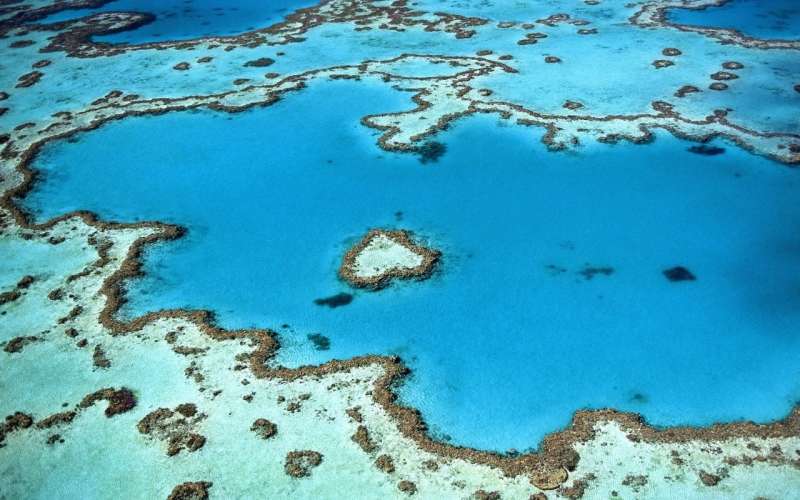Using probiotic bacteria to protect against coral bleaching
 Credit: CC0 Public Domain
Credit: CC0 Public Domain
Images of bare, naked white coral reefs have been increasingly circulating around the world. The typically colorful reefs of tropical oceans, which are home to many species of the marine ecosystem, are suffering from rising water temperatures due to global warming. There is no heat relief for the corals in sight. Scientists are desperately seeking out ways to make the temperature-sensitive organisms more resistant to heat stress. A group of scientists led by GEOMAR Helmholtz Centre for Ocean Research Kiel are developing a promising approach, which is based on a therapeutic treatment known from human medicine. The study was published in the international journal Microbiome.
"The idea is that probiotic bacteria with beneficial functions could help a coral to better withstand heat stress," explains Dr. Anna Roik from GEOMAR, lead author of the study, which was funded as part of a Future Ocean Network project at Kiel University. "In the current study, we tested the approach of a 'microbiome transplantation,' inspired by microbiome-based applications we know for example from clinical treatments," Roik continues.
The research group conducted coral microbiome transplantation experiments with the reef-building corals Pocillopora and Porites in the Andaman Sea in Thailand. They investigated whether this technique can improve the heat resistance of corals by modifying the bacterial microbiome. The scientists first looked for more heat-tolerant "donor" corals. "We then used material from the coral tissue of the donor corals to inoculate conspecific, heat-sensitive recipients and then documented their bleaching responses and microbiome changes using a genetic analysis method called 16S rRNA gene metabarcoding," explains Dr. Roik.
The recipient corals of both species bleached more mildly compared to the control group during a short-term heat stress test (34 °C). "The results show that the inoculated corals were able to resist the heat stress response for a short time," explains Prof. Dr. Ute Hentschel Humeida, head of the Marine Symbioses Research Unit at GEOMAR and co-author of the study. "In addition, the microbiome data suggest that the 'inoculated' corals may favor the uptake of putative bacterial symbionts," Dr. Anna Roik continues. "However, further experimental studies are required to unravel the exact mechanism of action, as well as long-term field-based studies to test the durability of the effect," says the marine biologist, looking ahead.
Explore further
More information: Talisa Doering et al, Towards enhancing coral heat tolerance: a "microbiome transplantation" treatment using inoculations of homogenized coral tissues, Microbiome (2021). DOI: 10.1186/s40168-021-01053-6
Provided by Helmholtz Association of German Research Centres
By accepting you will be accessing a service provided by a third-party external to https://oc3anclub.com/

